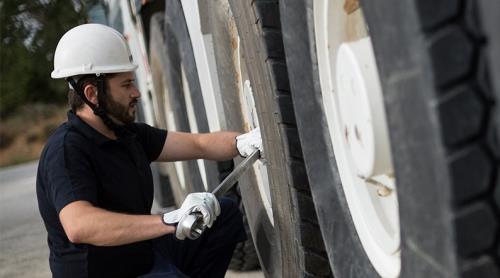Health and safety revs up
16 September 2019

A recent WorkSafe prosecution demonstrated the extent of the health and safety obligations in respect of company vehicles.
Sorenson Transport Limited was prosecuted by WorkSafe after one of its truck's brakes failed. An employee was injured, and the driver of the other vehicle sustained life changing injuries. WorkSafe investigated the incident and found the truck was not maintained to proper standards, and the brakes were not included on the employer's fleet check sheet.
WorkSafe Chief Inspector Steve Kelly said that Sorenson should have ensured the truck was adequately maintained and established an effective system for identifying and monitoring maintenance requirements.
The employer was fined $150,000 with $85,000 in reparation to be paid to two victims, one being the driver of the other vehicle hit in the accident
While decisions like this obviously impact industries where driving makes up the majority of the job, these health and safety requirements apply anytime an employee is driving for work purposes.
Under the Health and Safety at Work Act 2015 (HSWA), employers have the primary responsibility for their worker's health and safety at work and must ensure, so far as is reasonably practicable, the health and safety of its workers. This includes employees, contractors, trainees and volunteers.
These obligations require employers to provide a work environment that is without risk to health and safety, safe systems of work, sufficient training and supervision to minimise health and safety risks and mechanisms to monitor and prevent illness or injury arising from the work carried out.
Where an employee is operating a vehicle for work purposes, that vehicle is treated as a workplace for the purposes of the HSWA. This means the employer has the same health and safety obligations as they have when the employee is in the office or on the worksite.
Because the health and safety obligations on employers are onerous and include not only removing physical risks but also training and monitoring, it is clear that simply making sure a company vehicle has a current WOF is not enough.
WOF inspections on new vehicles are only required every three years, one year or six months depending on the age of the vehicle, and a lot can go wrong with a vehicle in this time.
As demonstrated in the Sorenson case, employers need to ensure work vehicles are regularly checked and put in place appropriate maintenance systems.
NZTA suggests that best practice includes encouraging drivers to do a pre-use "walk-around" before they drive any work vehicle, and that the employer implements a system for drivers to report vehicle faults.
Employers should have clear company car policies that mandate safe and legal use of the vehicle, and provide first aid kits in the vehicle. Employers may also look to proactively eliminate risky employee behaviour by implementing policies on phone use and monitoring the speeds of the vehicles to ensure employees are operating vehicles in a safe and legal manner.
Proactive policies like this also assist with the risk of reputational damage caused by unsafe or illegal use of company vehicles. Where an employee drives unsafely or otherwise commits traffic or parking offences, this can reflect negatively on their employer, particularly if the vehicle is branded or the driver is in uniform.
The risks of vehicles are not to be taken lightly - WorkSafe has emphasized that "vehicles are the single biggest cause of acute harm at work across all sectors". Failing to recognize the risks involved with company vehicles can place workers in danger and expose the business to liability.
Prosecutions under the HSWA can result in substantial penalties. Recklessly breaching a health and safety obligation can result in a $3 million fine, or where the breach is attributable to an individual like a director or a CEO, that person could face five years in prison and/or a $600,000 fine. Where there is no recklessness in the breach, there is no potential prison time, but the maximum penalty is $1.5 million.
The Sorenson case also demonstrates that the potential legal liability lies not only in a fine under the HSWA and reparation to the employee, but also potential reparation to any other individual harmed by a vehicle fault, which can be hundreds of thousands of dollars.
Health and safety compliance is an area that is rapidly evolving and expanding since the passing of the HWSA. Employers have both a legal obligation and a business interest in not only addressing safety risks, but also proactively preventing them.


